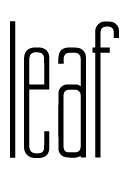
Gluten Free Day on a Plate
For people with coeliac disease* or gluten intolerance, going gluten-free is absolutely the best diet decision, but the gluten free diet is also becoming increasingly popular as an everyday diet, touted as the answer to a flat tummy and the magic pill for weight loss.
Whether you suffer from coeliac disease or have opted to follow a gluten free diet out of choice, it is important to be aware of the essential vitamins, minerals and fibre that may be missing from your diet and the alternative sources that these nutrients can be found in.
According to Body & Soul some of the important nutrients that are often lacking from a gluten-free diet can include:
B Vitamins
B Vitamins Niacin, Riboflavin, Thiamine and Folate are all found in gluten. B Vitamins help our body use carbohydrates, protein and fat as fuel, and are water soluble so are expelled from the body easily so they need to be eaten daily.
Alternative sources can be found in:
- Sunflower seeds
- Tempeh
- Green leafy vegetales
- Yoghurt
- Eggs
- Asparagus
- Almonds
- Lentils
- Tuna
- Salmon
- Chicken
- Brown Rice
Iron
Whilst iron isn’t missing from a gluten free diet as such, it can be poorly absorbed in instances where someone has had damage to their small intestine after gluten exposure.
The best sources of iron include:
Fibre
According to dietitian Jamie Rose Chambers switching from a wholesome, wholegrain bread to a gluten-free alternative can compromise the amount of fibre in your diet. This can cause digestive upsets and constipation, often making the symptoms you went gluten-free for in the first place even worse.
The best high fibre, gluten free foods include:
- Brown rice
- Buckwheat
- Quinoa
- Millet
- Fruit
- Vegetables
- Lentils
- Legumes
- Pulses
- Nuts and seeds including chia seeds
Whilst you won’t always get all of these nutrients every day, it is important to ensure you include these alternatives in a balanced diet to maintain a healthy diet.
*Coeliac (seel-ee-ak) disease is an immune disease caused by gluten, a protein found in grains such as wheat, rye, barley, triticale and oats. When people with Coeliac disease eat gluten, an inappropriate immune reaction causes inflammation and damage to the small bowel.Coeliac Disease affects on average 1 in 70 Australian however around 80% of this number remain undiagnosed. Coeliac Awarness Week runs between March 13 -19 with the aim to raise awareness of the disease, encourage symptom awareness and highlight the importance of getting tested.
